Sometimes I want an additional functionality in the IDE. (Are you a RIDE user? We’ll cover that too!) For example, the other day, I was tracing through some very long functions to find an error which was being caught by a trap. Since the error was being caught, I couldn’t just let the function run until it would suspend. Again and again, I would press too many times, causing the error to happen and be trapped, and thus having to start all over again.
I wish I could select a line and run until there, I thought. Sure, I could set a break-point there and then continue execution, but that would drop me into the session upon hitting the break-point, and then I’d have to trace back into the function, and remember to clear the break-point. A repetitive work-flow indeed.
Make it so!
Luckily, I know someone who loves doing repetitive tasks: ⎕PFKEY. This is what I needed done:
- Toggle break-point (to set it)
- Resume execution
- Trace
- Toggle break point (to clear it)
A quick look in Options > Configure… > Keyboard Shortcuts > Code revealed that the command codes for these are BP, RM, TC, and BP again, so I tried:
'BP' 'RM' 'TC' 'BP' ⎕PFKEY 10
BP RM TC BP I defined a simple function to test it with, and traced into that:
⎕FX 'f',⎕D
⎕VR 'f'
∇f
[1] 0
[2] 1
[3] 2
[4] 3
[5] 4
[6] 5
[7] 6
[8] 7
[9] 8
[10] 9
∇
f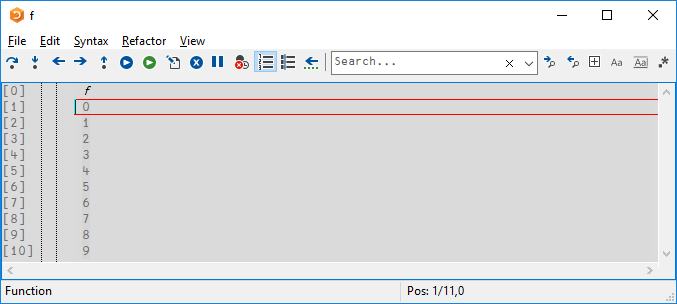
Then I clicked on the line with a 7 on it, pressed , and lo:
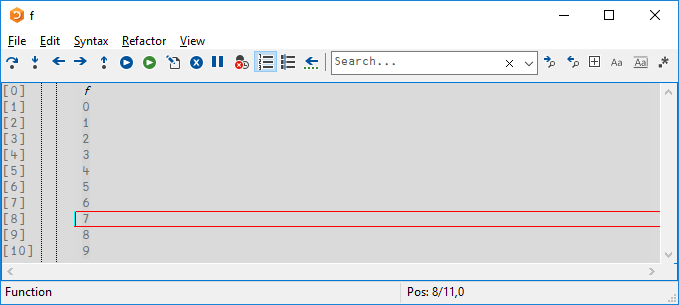
Keep it so!
Of course, I wouldn’t want to be bothered with setting this up in every session. So here’s a trick to set up F-keys (or anything else for that matter). When Dyalog APL starts up, it will look for MyUCMDs\setup.dyalog in your Documents folder ($HOME/MyUCMDs/setup.dyalog on non-Windows). If this file contains a function named Setup, it will be run whenever APL starts:
∇Setup
[1] '<F10> is: ','BP' 'RM' 'TC' 'BP' ⎕PFKEY 10
[2] ∇
(⊂⎕NR'Setup')⎕NPUT'C:\Users\Adam.DYALOG\Documents\MyUCMDs\setup.dyalog'
And now, when I start APL:
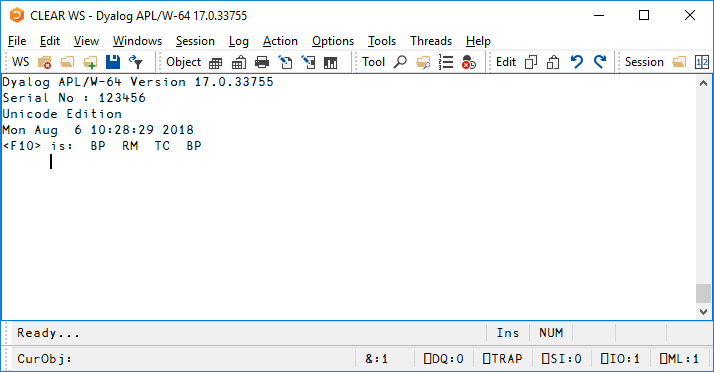
Cool, but how about the RIDE?
Right, the RIDE doesn’t support ⎕PFKEY. However, Edit > Preferences > Shortcuts lets you both find the relevant command codes and assign them to F-keys. Just put <BP><RM><TC><BP> (type or paste those sixteen characters, with angle brackets and everything — don’t press the keys they symbolise!) in the PF10 input field:
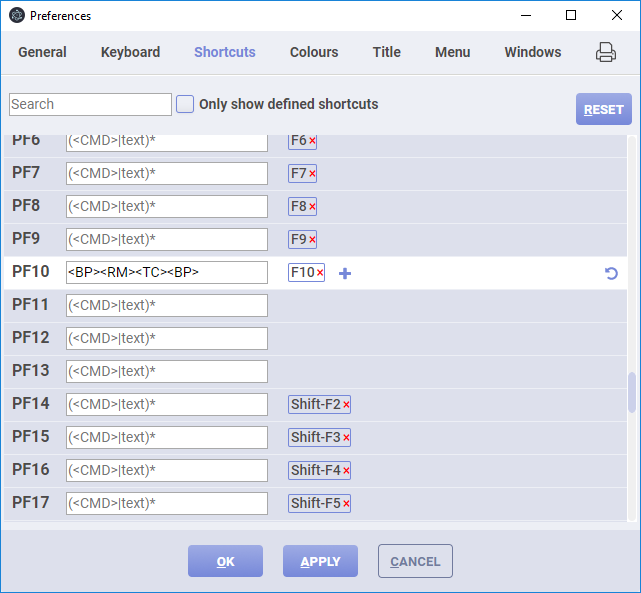
The RIDE saves these preferences for you. Note that you can’t assign F-keys in $HOME/MyUCMDs/setup.dyalog because ⎕PFKEY has no effect in the RIDE, but you can still use that file to initialise other things.
Taking it one step further…
After using this for a while, I realised that I often want to “step into” a specific line . That is, I found myself pressing and then – (the default keystroke for tracing). So I’ve assigned – the same sequence, but with an additional trailing TC action:
∇Setup
[1] '<F10> is: ','BP' 'RM' 'TC' 'BP' ⎕PFKEY 10
[2] '<Ctrl>+<F10> is: ','BP' 'RM' 'TC' 'BP' 'TC' ⎕PFKEY 34
[3] ∇
(⊂⎕NR'Setup')⎕NPUT'C:\Users\Adam.DYALOG\Documents\MyUCMDs\setup.dyalog'
And for the RIDE, I set PF34 (which by default is invoked with –) to <BP><RM><TC><BP><TC>:
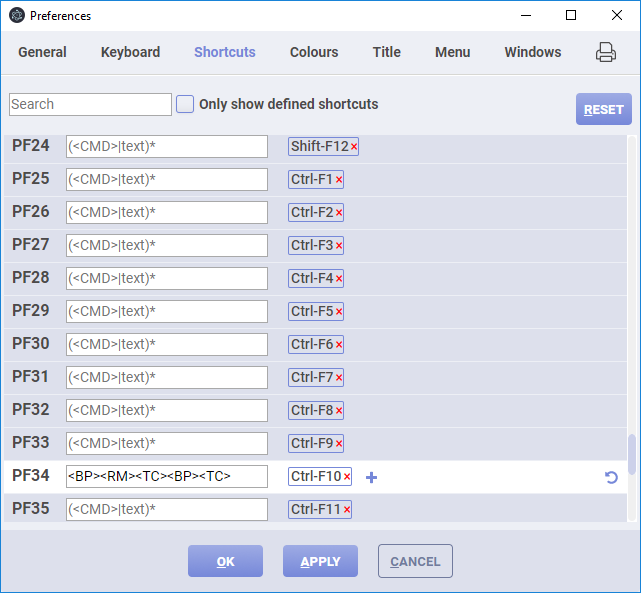


 Follow
Follow